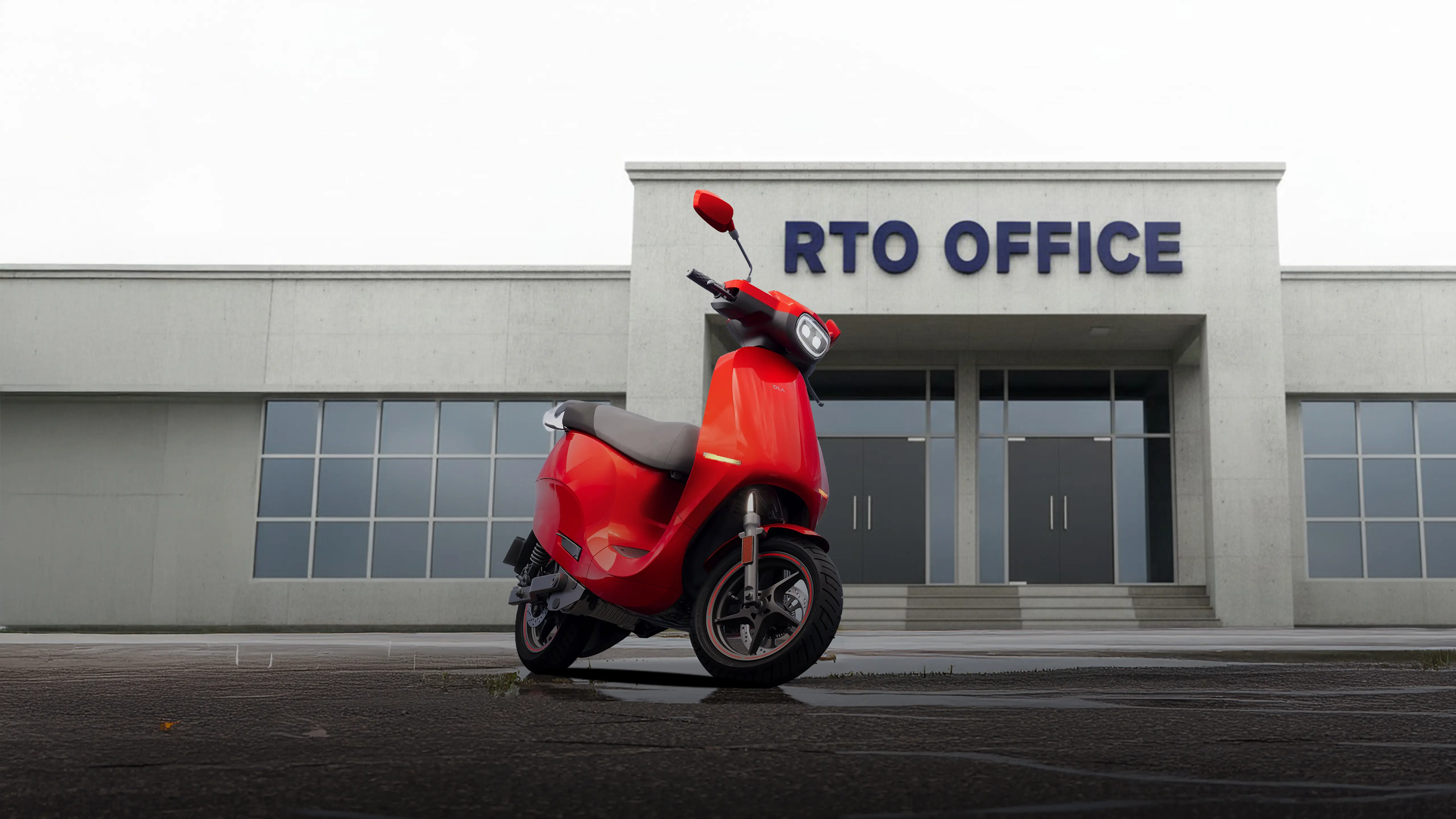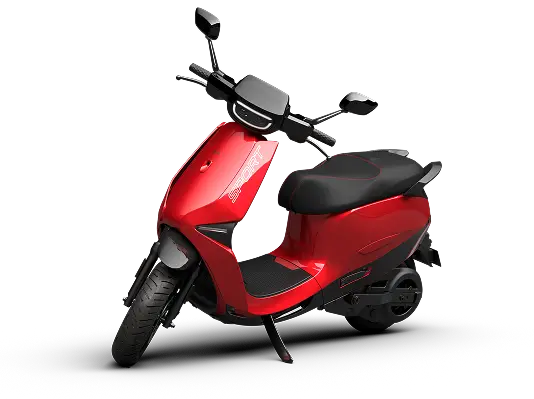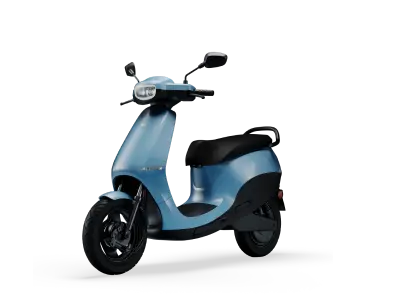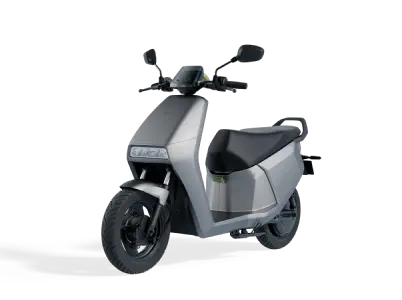We use cookies to ensure that we give you the best experience. Learn more.
Registration for Two-Wheeler Vehicle: Everything You Need to Know
Registering your new bike or scooter is the first step to making it road-legal. This guide walks you through the complete two-wheeler registration process in India, including EV-specific rules and documents

Registration for two-wheeler vehicle: everything you need to know
Whether you’re buying your first scooter or upgrading to a new bike, completing the electric EV & petrol vehicle registration is a mandatory step to legally ride on Indian roads. This page will guide you through the complete process of registering a two-wheeler- covering required documents, RTO procedures, fees, and timelines- so you know exactly what to expect before taking your vehicle home.
What is Vehicle Registration?
Vehicle registration is the official process of recording a vehicle with the Regional Transport Office (RTO) and assigning it a unique registration number. Its purpose is to establish the vehicle’s legal identity, link ownership details, and ensure compliance with road safety and taxation laws. Legally, driving without proper vehicle registration is prohibited in India, making it an essential requirement for both electric EV and petrol vehicles to operate on public roads.
How to Register Your New Vehicle?
The new vehicle registration process at the RTO involves submitting the required documents such as invoice, insurance, ID and address proof, followed by filling the registration application. Once the details are verified and OTP authentication is completed, the vehicle registration at RTO is processed and the Registration Certificate (RC) is issued to the customer.
Difference Between EV & Petrol Vehicle Registration
The electric EV and petrol vehicle registration process is the same at the RTO. The key advantage for EVs is lower or waived road tax and registration fees in many states, along with long-term savings on running costs.
Step-by-Step Guide to Registering Your EV at the RTO
The EV registration is handled by the dealer. Ola Electric will be registering the vehicle for you.
The EV RTO registration process is simple and Ola helps you at every step.
- Order & document upload – Once you place your order, you need to upload the required documents (KYC, address proof, etc.) for verification.
- VIN allocation - Ola allocates the Vehicle Identification Number (VIN) to your scooter.
- Invoice & insurance – The invoice is generated and insurance is arranged.
- OTP verification – Depending on your state, authentication happens either through Aadhaar OTP (two-step) or Vaahan OTP. Ola guides you through this step.
- Application generation – An application is generated on the Vaahan portal.
- Document submission – Ola uploads all necessary documents including invoice, insurance, KYC, disclaimer, Form 20, Form 21, inspection report, and chassis image.
RTO approval – The RTO verifies the application and issues the Registration Certificate (RC).
How much Time is Required to Complete Electric Vehicle Registration
The EV registration duration varies by state, but on average, the process from invoice to registration takes about 5 working days. However, this would depend on the state and the process they follow as some RTOs have physical processes.
How Much Does a Vehicle Registration Document Cost?
The EV registration fee is an overall cost that differs by state and also varies depending on the vehicle variant. Many states offer reduced or even zero registration charges for EVs, whereas ICE (petrol) vehicles usually attract higher fees due to added road tax components. To know the exact amount, you can simply select your variant and enter your pincode during the booking process for a detailed cost breakdown.
How to Track Your EV Registration Application Status Online
You can easily track EV registration status online after submitting your application. Simply visit the Vaahan portal, enter your application number and other details, and the system will display the current stage of your registration. Some states also provide status tracking through their respective transport department portals, but the Vaahan site works as the central platform across India.
What is the Required Inspection and Verification needed for Electric Vehicle Registration
The EV registration inspection rules differ from state to state. While some states allow the entire process to be completed digitally, others require selective document submission in person, and a few mandate a full physical inspection. Currently, Tamil Nadu is the only state where the vehicle must be physically presented at the RTO for registration. During this inspection, the RTO verifies key details such as the chassis number, motor, and battery specifications to ensure authenticity and compliance. This step is mandatory before the registration is approved and the RC is issued.
State-Wise Registration Rules for Electric Vehicles
The EV registration rules require Aadhaar Card and PAN Card everywhere, but the regulations differ as per the state.. Some states like Delhi, Maharashtra, and Gujarat offer full road tax exemption, while others give partial rebates. Certain RTOs need same-day insurance invoices, whereas others allow 3–7 days. The regulations would differ as per the state.
Vehicle Registration Cancellation Process for EVs
You cannot cancel an EV registration once the vehicle has been invoiced and registered with the RTO, as registration is mandatory for all vehicles being purchased. However, if the registration process is still in progress and the application has not yet been submitted to the RTO, you can cancel your order. This is recommended if you wish to change your order or variant before final submission.
Digital RC (Registration Certificate) for Electric Vehicles
The concept of a digital RC for EV makes the registration process paperless and convenient. Once the RTO approves your registration, the Digital RC is issued in states like Haryana, Maharashtra, Rajasthan, Jammu & Kashmir, Assam, Punjab, and Goa. You can access it through DigiLocker or mParivahan, while dealers also have the option to check and verify the RC status online.
Green Number Plate: Eligibility and Benefits for EV Owners
All EVs in India are required to have a green number plate for electric vehicles, as mandated by the Ministry of Heavy Industries (MHI). The green plate helps authorities and the public easily identify zero-emission vehicles, ensuring regulatory distinction from petrol or diesel vehicles. Key benefits include exemptions from certain road taxes, easier entry into low-emission zones, and in some states, special incentives like free parking or toll concessions.
Common Mistakes to Avoid During EV Registration
The most common EV registration issues include missing KYC documents, mismatched address proof, or late submission of insurance invoices (like in Maharashtra where Aadhaar Card isn’t accepted). Ola Electric helps customers avoid these by validating documents and guiding them through the process.



















